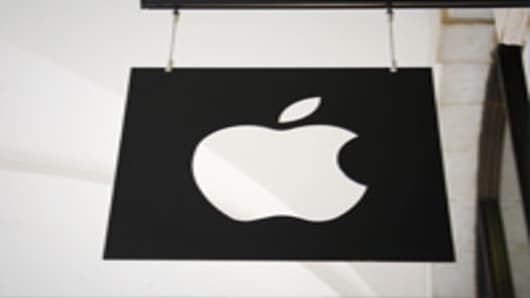It's iPad week. Expect the usual frenzy around Apple's latest product launch. In our discussions with Apple watchers (our central office is 45 miles away from Apple's Cupertino headquarters), we expect a significant upgrade including better display and LTE support. Knowing Apple, there will likely be a few other surprises that will no doubt leave the faithful celebrating.
But as an investor, what's important when looking at Apple is one major overarching theme that drives corporate profits for this tech giant; the product upgrade cycle. Every Apple product has a lifespan. And when a product moves towards end-of-life, the price thereby creating another tier offering. That equals more revenue.
It's classic pricing strategy; charge a premium for the latest offering and discount down the price for old product. This strategy is a conscious positioning effort which allows Apple to capture premium pricing for new products while the same time extracting every last penny of profit from legacy devices.
Apple tends to be priced higher than competitors. That has been the case from Macintosh computers to iPods to iPhones to iPads. And as innovation improved Apple products, Apple merely rebranded the previous generation as an entry-level technology device. We are confident that the same strategy will play out this week when the iPad 3 is announced. Expect the iPad 2 to now be an entry-level tablet device designed to compete with lower-cost android devices. A similar strategy is clear in the cell phone space. Emerging markets should brace for iPhones; they are coming to prepaid around the world. It’s another example of Apple’s life cycle marketing strategy.
Over the next several years, it is critical for Apple to develop the next device runway. Perhaps Apple TV, with its Siri voice recognition and integration with iTunes, will provide the next product line to provide years of upgrade opportunity. But one must be cognizant of the fact that innovation requires creative thinking to develop products that consumers are not even aware they need or want; such was the brilliance of Steve Jobs. With the change in management, we will have to see if current leadership under Tim Cook can execute well AND imagine product lines that will continue to drive Apple earnings.
There is no guarantee that the upgrade cycle will remain a compelling reason to own the stock long term if new innovation does not create compelling brand runways. And if runways are not created, the resulting stock price impact can be significant. One only needs to look at Microsoft as an illustration of a company the migrated from a growth story to value play. For years, the company enjoyed the benefit of new versions of Office and the core operating system that drives Windows. For a great many years the cash rolled in. But after a while, consumers started to ask “Do we really need to upgrade if the difference is not that great from the previous version?”. Microsoft is looking to change that with Windows 8 but slower growth played out as the product upgrade benefit simply did not seem as compelling. Microsoft stock stagnated as a result.
The next couple years for Apple are pretty much laid out and you can expect improvements on all product lines which will no doubt lead to long lines on Fifth Avenue in New York and at other Apple stores around the world. It's an enviable competitive position when product launches are treated like movie premieres. Just remember, that like movies or TV shows, there is no guarantee that today's popularity will necessarily lead to success five years from now. And I suspect that the gang at Google is staying up at night, as well as a myriad of other competitors, trying to figure out how THEY can steal Apple’s thunder.
So as you watch this week's news and see the Apple faithful react with glee, absorb the moment. But as fickle consumers prove again and again, today’s popularity is not guaranteed to last. After all, Microsoft was once seen as THE technology company. RIM was a must have device. The reality is, Apple must innovate to stay atop the heap. Their ability to innovate is what will matter for the long term as an investor.
Michael Yoshikami, Ph.D., CFP®, is CEO, Founder and Chairman of the DWM Investment Committee at Destination Wealth Management. Michael is a CNBC Contributor and appears regularly on the network. DWM is a San Francisco Bay Area-based independent money management firm that provides fee-based wealth management services to institutions and individuals around the world. Michael was named by Barron's as one of the Top 100 Independent Financial Advisors for 2009, 2010 and 2011.


